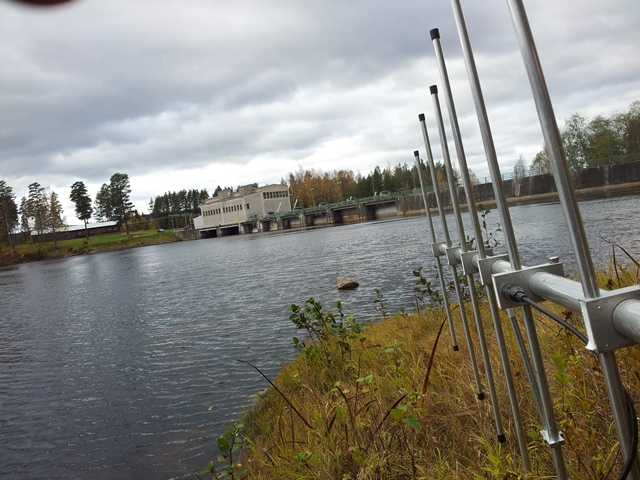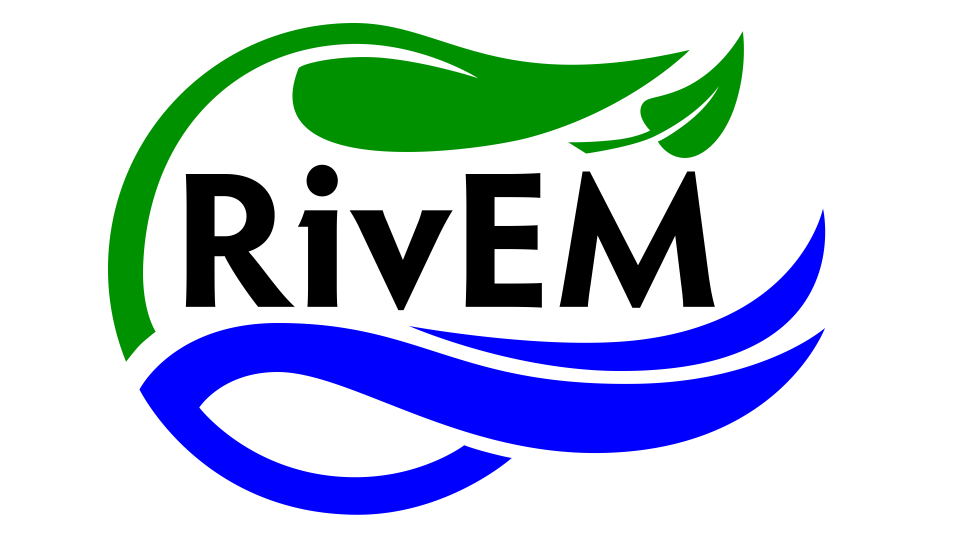
Yagi antenna used to study the movement of radio-tagged Atlantic salmon at the Edsforsen hydropower dam in the River Klarälven.
On 12-13 December, Theodore Castro-Santos from Conte Anadromous Fish Research Center (USGS) will give a course titled “Advanced Telemetry Techniques – Data Management and Analysis for Fish Passage Studies” at Karlstad University, Sweden. The two-day course is described further:
“Fish passage is about movement, and fish passage effectiveness can only be understood by measuring rates at which fish move past barriers. Telemetry is often the best tool for measuring effectiveness. Many studies, however fail to make optimal use of available data, and over-simplistic analyses can often lead to inaccurate conclusions. In this course we will discuss the three principle types of telemetry data (PIT, radio, acoustic), reviewing their common characteristics and challenges associated with managing the very large datasets these technologies can produce.
On the first day we will review study design concepts, and students will learn about relational database structure, optimal database design, and extraction of basic passage metrics (proportion entering, proportion passing).
On the second day, we will delve deeper into analysis methods, with an overview and rationale for applying time-to-event analysis to passage data. This approach allows researchers to explicitly account for environmental covariates that change over time, address the problems associated with fish that are exposed to multiple and changing conditions, and show how these factors can be incorporated into metrics of passage performance without incurring bias. We will conclude by analyzing an actual fish passage dataset, exploring the strengths and limitations of the approach.
The course will be in English. Attendees should have decent computer skills and should come prepared with a laptop loaded with Microsoft Access and R (packages: Survival, Dplyr, Coxme, Ggplot2). These will be our primary tools as we move through the course material. Attendees are also encouraged to bring their own data and/or descriptions of previous or planned studies. We can use these as part of a discussion and critique of study design concepts.”
Schedule for the course:
Monday 12 Dec kl 8:30 -12:00 i room 5F323
Monday 12 Dec kl 13:00 -16:00 i room 5F416
Tisday 13 Dec kl 8:30 – 12:30 i room 5F 416.
The course is free to attend but requires registration. Registrate by e-mail to Larry Greenberg (larry.greenberg@kau.se).


